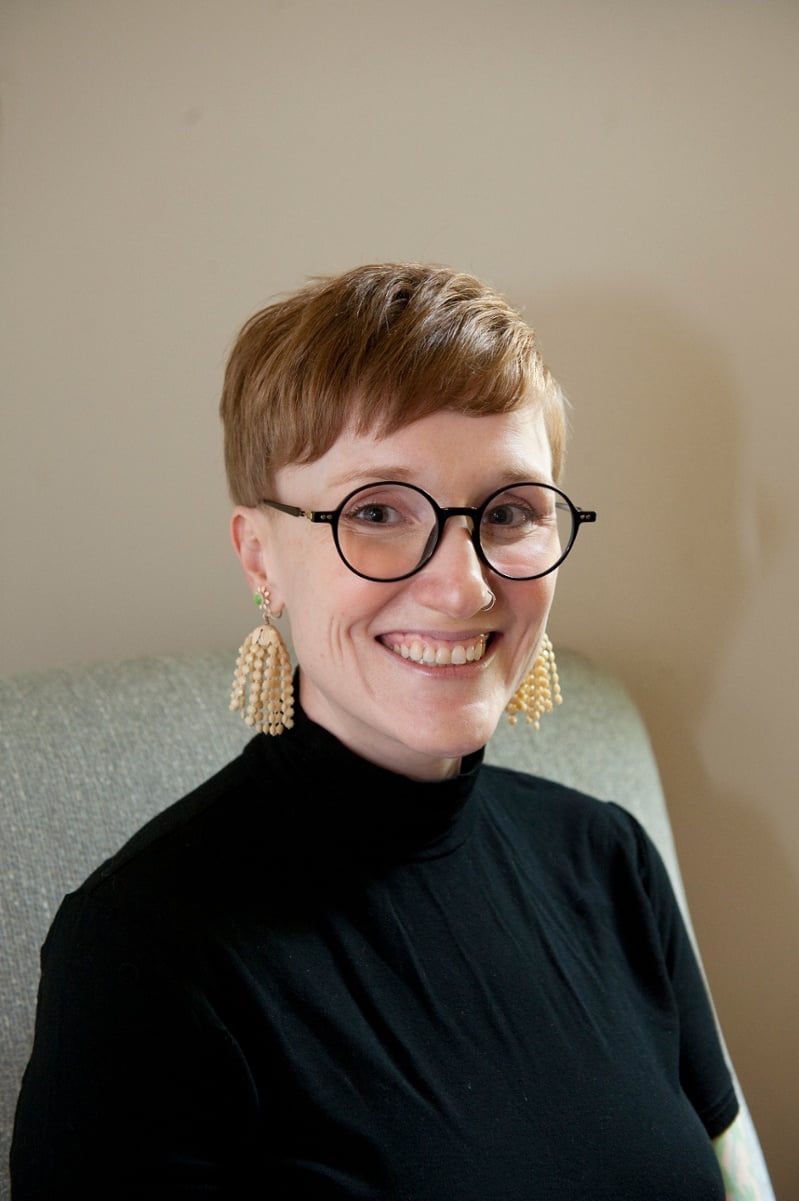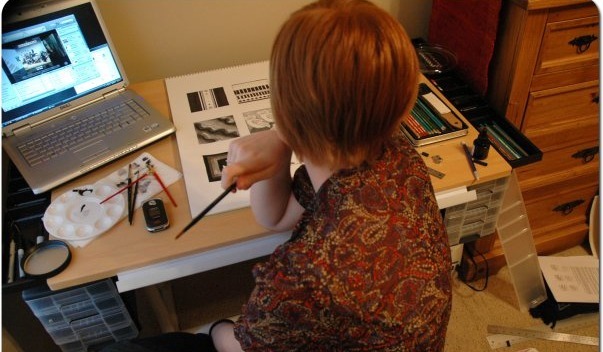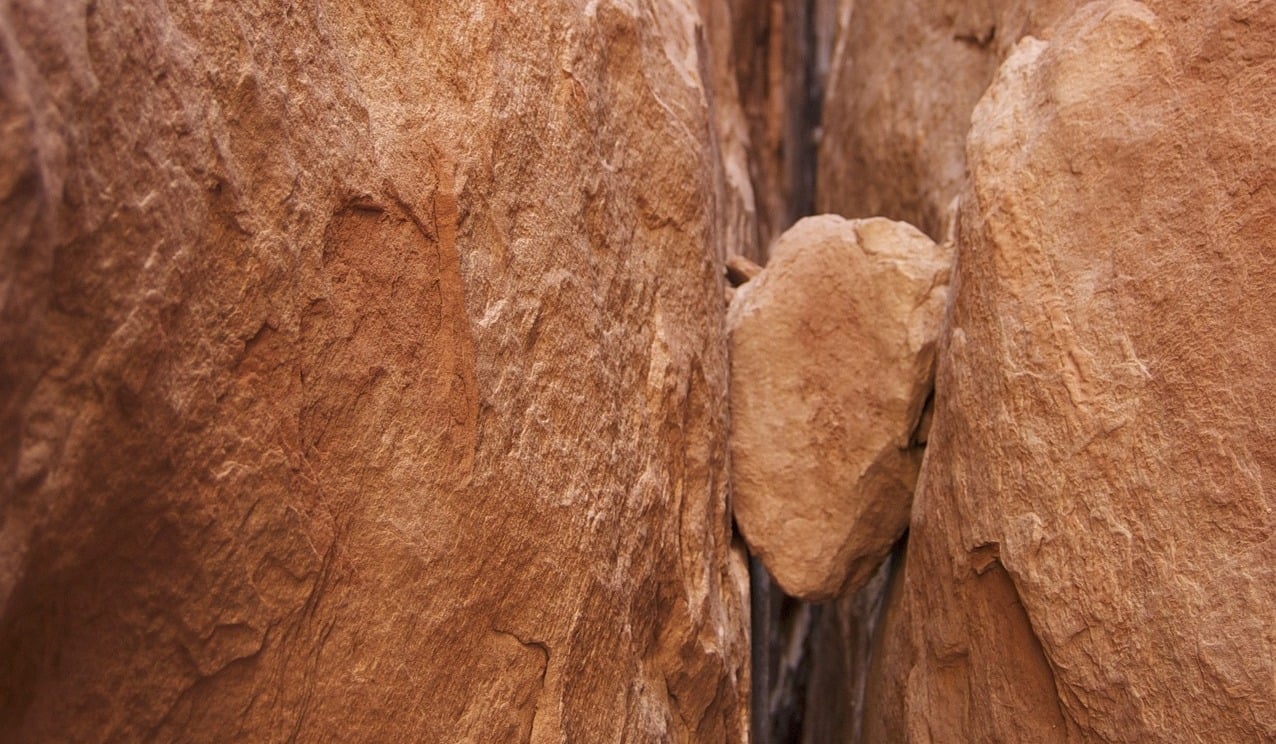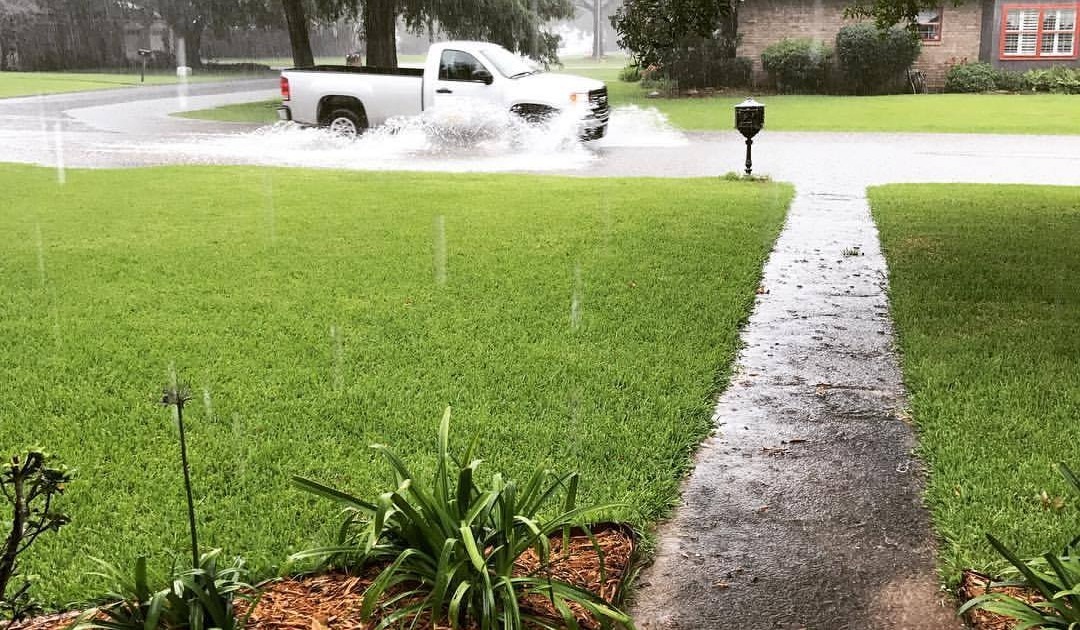A Rock and a Hard Place
I love that as a culture we are embracing the idea that "it's okay to not be okay." It's so accepting and welcoming of folks with all kinds of...
4 min read
 Whitney Storey, MS, LPC, ASDCS
:
Jun 24, 2022 9:45:00 AM
Whitney Storey, MS, LPC, ASDCS
:
Jun 24, 2022 9:45:00 AM

I have a long history of being involved in the arts and finding benefits from making art by myself and with others. While I had folks who encouraged me in my practice, I also found that many people (mostly my peers) didn't understand my love of art. The stigma I felt about my artistic self lead to feelings of shame. My best friend in undergrad even told me one time, as we were discussing dating, "maybe you shouldn't tell them you're a theatre major" - as if distancing myself from the arts were possible, let alone preferable! Art fills me with life. It is one of my favorite self care ideas.
I drew pictures (mostly of horses) in Microsoft Paint on our family's first computer, I built tiny furniture from construction paper for my toys, I created intricate terrariums for the creatures I caught and cared for. As I got older, I was able to experience different ways of creating through school and church - singing and acting, sculpture, puppetry, batik...my time in an international school in Bangkok, Thailand was particularly influential in finding new ways of expressing myself through the arts that weren't previously available to me in the U.S. public school system.
The arts had so much to offer me, and where I could offer meaningful things to other people, too.
I think this one will be particularly relevant to people who think about making art and immediately want to run away because they feel incapable. Art is a skill, and there is no human who has been good at every art and any one art all of the time. I learned very quickly that sometimes the image I have in my mind just doesn't manage to make it all the way onto the paper, and that frustration of feeling as if my body isn't cooperating is a frustration that has shown up throughout my adult life.
When I was able to practice empathy for myself. I also learned that I became much better at also practicing empathy for other people in my life. We all struggle from time to time to do things that seem so intuitive and are so important to us, even if in the moment we feel so alone in our struggling.
Art, regardless of the medium, is a process. It's a practice. I remember the anxiety of presenting my final works to a full classroom of people who I believed to be so much more talented than myself. To hear them tell me what they felt was off about my art was painful. To hear them speak about the things they loved about my art was also sometimes uncomfortable.
Allowing myself to be fully seen and fully known is sometimes terrifying! But it's also in those moments when I have practiced trust and then intimacy grew, my relationships have deepened, and, when necessary healed.
Psychologist Mihaly Csikszentmihalyi (1975) first discussed the concept of "flow" - a state of being fully engaged and immersed in some sort of meaningful process. When we are in a flow state, time flies and we feel a sense of energy and excitement. I have had more flow experiences with art than with anything else, and when I feel that I am in a slump and life is not what I want it to be, I can often find relief by engaging with art and experiencing flow.
Flow experiences with art provides a way to rest, activate my brain in new ways, and to re-energize. I have a well-practiced and reliable way of caring for myself and a powerful tool to share with others.
This can be a frustrating part of being an artist. As creators, we often know what the art work means and is trying to say. But once that art work is out for other people to see, they interpret the art through their own personal context and what they decide can be quite different, even to the point of clashing with what we imagined.
I have seen this in my relationships with other people, as well. The things I say sometimes come off in ways that I wasn't intending. When I divide my attention, for example, between my phone and my children, they can't know that I am overstimulated and seeking relief so that I can be more present with them later. They see that, in that moment, they are less important than my phone. Moments like this are painful and important lessons for me.
I still find myself self-conscious and too focused on what people might be thinking about me from time to time, but allowing myself to defuse from that and also see the people around me more clearly usually helps to relieve myself of those fears.
When you'd like to explore this side of yourself more, reach out to me, and let's see what happens when we allow ourselves to create together.

I love that as a culture we are embracing the idea that "it's okay to not be okay." It's so accepting and welcoming of folks with all kinds of...

October of 2022 was a huge month for me. It was in this month that I finally earned my certification in Perinatal Mental Health, which was really the...

If you were to randomly choose a therapist, you would likely end up with someone who uses cognitive-behavioral therapy (CBT), which has been the...